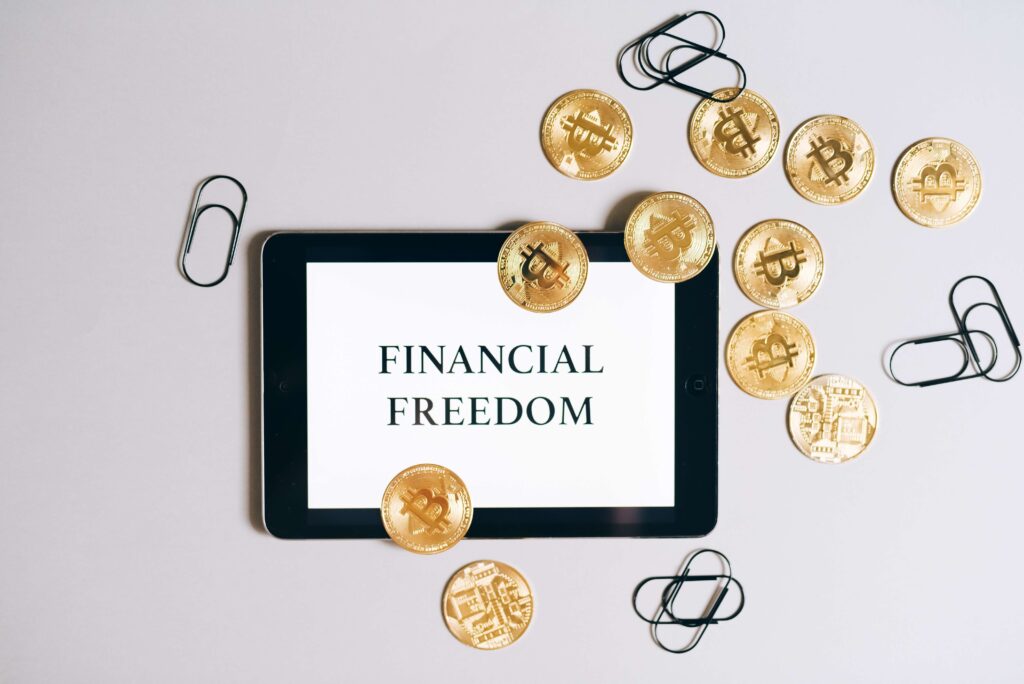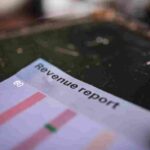How Much Money for Financial Freedom? Financial freedom is a goal that many people strive for, as it offers the ability to live life on your own terms without being bound by financial constraints. But how much money is needed to achieve this coveted state of independence? The answer to that question will differ for everyone, as it depends on various factors such as individual preferences, lifestyle choices, and financial responsibilities.
How Much Money for Financial Freedom: Calculating Your Path to Financial Independence
To determine how much money is needed for financial freedom, it’s essential to first define what financial freedom means to you. For some, it may mean having enough savings to retire early and live comfortably without worrying about bills. For others, it could mean having enough passive income streams to cover all expenses while pursuing their passions or starting a business. Whatever your definition, the key is to have enough money to sustain the lifestyle you desire without constantly worrying about making ends meet.
Factors such as monthly expenses, debt obligations, desired retirement age, and desired lifestyle all play a crucial role in calculating the amount of money needed for financial freedom. By evaluating your current financial situation and setting clear goals, you can develop a roadmap that outlines how much money you need to save, invest, and generate to achieve financial freedom. So, let’s delve into the details and explore the steps you can take to determine your own path to financial independence.
Defining Financial Freedom
Financial freedom is a term that gets thrown around a lot, but what does it really mean? Simply put, financial freedom is the ability to live life on your own terms without being constrained by money. It’s about having enough wealth and resources to do what you want, when you want, and how you want.
To truly understand financial freedom, it’s important to recognize that it’s a personal and subjective concept. What may be considered financial freedom for one person may not be the same for another. It’s about aligning your finances with your values and goals, and finding a balance that brings you fulfillment and peace of mind.

Here are a few key aspects to consider when defining financial freedom:
- Income and Expenses: Financial freedom starts with having enough income to cover your expenses comfortably. It’s about having a surplus, so you’re not living paycheck to paycheck, and you have the freedom to save, invest, and pursue your passions.
- Debt Freedom: Being financially free also means being free from the burden of debt. It’s about paying off your debts, whether it’s credit card debt, student loans, or a mortgage, and living a life free from financial obligations.
- Savings and Investments: Building a robust savings and investment portfolio is essential for financial freedom. It’s about having a safety net for emergencies and creating wealth that can generate passive income in the future.
- Flexibility and Choices: Financial freedom gives you the flexibility to make choices without being solely driven by money. It’s about having the freedom to take risks, explore new opportunities, and pursue your passions, whether it’s starting a business, traveling the world, or pursuing a creative endeavor.
Remember, financial freedom is not just about accumulating wealth for the sake of it. It’s about finding a balance between enjoying the present and securing your future. It’s about having enough money to live the life you want, while also prioritizing your overall well-being and happiness.
| Aspect | Definition |
|---|---|
| Income and Expenses | Having enough income to cover your expenses comfortably, with a surplus for savings and investments. |
| Debt Freedom | Being free from the burden of debt, including credit card debt, student loans, and mortgages. |
| Savings and Investments | Building a robust savings and investment portfolio for emergencies and generating passive income. |
| Flexibility and Choices | Having the freedom to make choices without being solely driven by money, pursuing passions and taking risks. |
Factors Affecting Financial Freedom
Financial freedom is a goal that many people aspire to achieve. It represents the ability to live comfortably, without worrying about money, and having the freedom to pursue your passions and dreams. However, the path to financial freedom is influenced by various factors that can either speed up or slow down your progress. Let’s explore some of the key factors affecting financial freedom:
- Income: Your income plays a crucial role in determining how quickly you can achieve financial freedom. The more money you earn, the more you can save and invest towards your goals. Consider diversifying your income sources or exploring opportunities for career advancement or side hustles to increase your earning potential.
- Expenses: Managing your expenses is equally important in your journey towards financial freedom. Keeping your spending in check and avoiding unnecessary debt can help you save more and invest wisely. Create a budget, track your expenses, and identify areas where you can cut back to free up extra funds.
- Savings and Investments: Building a solid savings and investment strategy is vital for achieving financial freedom. Saving a portion of your income regularly and investing it wisely can help your money grow over time. Consider exploring different investment options such as stocks, bonds, real estate, or retirement accounts.
- Debt: Managing and reducing debt is critical to achieving financial freedom. High-interest debts, such as credit card debt or personal loans, can eat into your income and hinder your progress. Prioritize paying off debt and consider strategies like debt consolidation or refinancing to lower interest rates.
- Financial Knowledge: Educating yourself about personal finance and investment strategies is key to making informed decisions. Stay updated on financial trends, seek advice from experts, and take advantage of educational resources to enhance your financial literacy.
- Lifestyle Choices: Your lifestyle choices can significantly impact your journey towards financial freedom. Making conscious decisions about housing, transportation, entertainment, and other expenses can help you allocate more resources towards savings and investments.
Remember, financial freedom is a journey that requires discipline, patience, and perseverance. By considering and actively managing these factors affecting financial freedom, you can set yourself on the path to achieving your goals and living a financially secure life.
| Factors Affecting Financial Freedom |
|---|
| – Income |
| – Expenses |
| – Savings and Investments |
| – Debt |
| – Financial Knowledge |
| – Lifestyle Choices |
Setting Your Financial Freedom Goal
When it comes to achieving financial freedom, setting a clear goal is the first step on your journey. It’s important to define what financial freedom means to you and how much money you need to make it a reality. Here are some tips to help you set your financial freedom goal:
- Reflect on your desired lifestyle: Start by envisioning the life you want to lead once you achieve financial freedom. Do you dream of traveling the world, starting your own business, or retiring early? Take some time to think about the experiences and goals that matter most to you.
- Calculate your expenses: To determine how much money you need for financial freedom, you must first understand your current and future expenses. Begin by tracking your monthly spending and categorizing it into essential and discretionary expenses. Consider factors such as housing, transportation, healthcare, education, and entertainment.
- Factor in inflation: Keep in mind that the cost of living tends to increase over time due to inflation. When setting your financial freedom goal, account for potential inflation rates to ensure you have enough money for the future.
- Consider your timeline: How quickly do you want to achieve financial freedom? Setting a realistic timeline will help you stay motivated and focused on your financial goals. Remember, it’s important to strike a balance between an aggressive timeline and one that allows you to enjoy your journey towards financial freedom.
- Seek professional advice: If you’re unsure about setting your financial freedom goal, consider consulting with a financial advisor. They can provide valuable insights and help you create a personalized plan based on your unique circumstances.
Remember, financial freedom is a journey, not an overnight destination. It’s essential to regularly review and adjust your goals as your circumstances change. Stay focused, stay disciplined, and keep working towards your financial freedom goal.
| Tips for Setting Your Financial Freedom Goal |
|---|
| – Reflect on your desired lifestyle |
| – Calculate your expenses |
| – Factor in inflation |
| – Consider your timeline |
| – Seek professional advice |
Creating a Budget for Financial Freedom
When it comes to achieving financial freedom, creating a budget is an essential step. A budget helps you track your income and expenses, ensuring that you’re living within your means and making progress towards your financial goals. Here’s a breakdown of how to create a budget that can lead you to financial freedom:
- Assess your current financial situation: Start by evaluating your income, including your salary, investments, and any other sources of income. Take note of all your expenses, including fixed costs like rent/mortgage payments and utilities, as well as variable expenses like groceries, entertainment, and transportation. This step will give you a clear picture of your financial standing.
- Set financial goals: Determine what financial freedom means to you. Is it paying off debt, saving for retirement, or achieving a certain level of passive income? Set specific, measurable goals that will guide your budgeting process.
- Differentiate between needs and wants: Differentiating between essential expenses and discretionary spending is crucial when creating a budget. Focus on covering your needs first, such as food, housing, and healthcare. Then allocate funds for your wants, like dining out or vacations, based on your financial goals.
- Track your expenses: Monitoring your spending helps you identify areas where you can cut back and save more money. Consider using budgeting apps or spreadsheets to track your expenses and categorize them accordingly.
- Create a budget plan: Based on your financial goals and expense tracking, develop a budget plan. Allocate a portion of your income towards savings, emergency funds, debt repayment, and investments. Be realistic and flexible, adjusting your plan as needed.
- Review and adjust regularly: A budget is not set in stone. Regularly review your budget, especially when your financial situation changes. Adjustments may be necessary to accommodate new expenses or changes in income.
Remember, creating a budget is just the first step towards financial freedom. Consistency and discipline are key to maintaining and achieving your financial goals. Stay focused, make informed financial decisions, and regularly assess your progress to ensure you’re on the right track.
| Steps to Create a Budget |
|---|
| Assess your current financial situation |
| Set financial goals |
| Differentiate between needs and wants |
| Track your expenses |
| Create a budget plan |
| Review and adjust regularly |
By following these steps and sticking to your budget, you’ll be well on your way to achieving financial freedom.
Investing for Financial Freedom
Investing is a crucial step towards achieving financial freedom. By making smart investment choices, you can grow your wealth, generate passive income, and ultimately gain the financial independence you desire. Here are some key points to consider when investing for financial freedom:
- Define your financial goals: Before diving into investments, it’s essential to have a clear understanding of your financial goals. Are you looking for short-term gains or long-term stability? Knowing what you want to achieve will help you tailor your investment strategy accordingly.
- Diversify your portfolio: The age-old saying “don’t put all your eggs in one basket” holds true in the world of investing. Diversification helps spread risk and protects your portfolio from potential downturns. Consider investing in a mix of stocks, bonds, real estate, and other asset classes to build a well-rounded portfolio.
- Understand risk and return: Investing always involves a certain level of risk. It’s important to assess your risk tolerance and understand that higher returns often come with higher risks. Evaluate investment opportunities based on potential returns and the level of risk you are comfortable with.
- Invest for the long term: Patience is key when it comes to investing for financial freedom. While short-term market fluctuations may be nerve-wracking, it’s important to stay focused on your long-term goals. Investing for the long term allows you to take advantage of compounding and ride out market volatility.
- Educate yourself: Investing can seem intimidating, but educating yourself about different investment options and strategies is essential. Stay updated on financial news, read books, attend seminars, or consider working with a financial advisor who can guide you in making informed investment decisions.
Remember, investing for financial freedom is a journey, not a sprint. It requires discipline, patience, and a long-term perspective. By following these principles and adapting them to your unique financial situation, you can start building a solid foundation for your financial future.
| Points to Consider |
|---|
| Define your financial goals |
| Diversify your portfolio |
| Understand risk and return |
| Invest for the long term |
| Educate yourself |
Achieving Financial Freedom: Tips and Strategies
When it comes to achieving financial freedom, there are several tips and strategies that can help you along the way. Here are some key points to consider:
1. Set Clear Goals:
- Determine what financial freedom means to you. Is it being debt-free, having a comfortable retirement, or being able to travel the world?
- Write down your goals and be specific. For example, instead of saying, “I want to save more money,” specify how much you want to save within a certain timeframe.
2. Create a Budget:
- Track your income and expenses to gain a clear understanding of your financial situation.
- Identify areas where you can cut back on spending and allocate more money towards your goals.
- Consider using budgeting apps or spreadsheets to help you stay organized.
3. Save and Invest Wisely:
- Make saving a priority by automating regular contributions to a savings account.
- Explore different investment options such as stocks, mutual funds, or real estate.
- Diversify your investments to spread the risk and maximize potential returns.
4. Eliminate Debt:
- Prioritize paying off high-interest debts, such as credit card balances or personal loans.
- Consider using the snowball or avalanche method to tackle multiple debts systematically.
- Negotiate with lenders to lower interest rates or explore debt consolidation options.
5. Increase Your Income:
- Look for opportunities to boost your earnings, whether through a side hustle, freelancing, or advancing in your current career.
- Invest in your skills and education to enhance your earning potential over time.
6. Seek Professional Advice:
- Consult with financial advisors or planners to get personalized guidance based on your specific circumstances.
- Educate yourself about personal finance through books, podcasts, or online resources.
Remember, achieving financial freedom is a journey that requires discipline, commitment, and patience. Stay motivated by celebrating small milestones along the way and adjusting your strategies as needed. With time and effort, you can move closer to the financial freedom you desire.
| Tips and Strategies |
|---|
| – Set clear goals |
| – Create a budget |
| – Save and invest wisely |
| – Eliminate debt |
| – Increase your income |
| – Seek professional advice |
Maintaining Financial Freedom
Congratulations on achieving financial freedom! But the journey doesn’t end there. To maintain your newfound financial independence, you need to adopt certain habits and strategies. Here are a few tips to help you stay on track:
1. Stick to your budget
Maintaining a budget is crucial to ensure that you continue to live within your means. Review your expenses regularly and track your spending to identify any areas where you might be overspending. Adjust your budget accordingly to maintain a healthy balance between your income and expenses.
2. Save for emergencies
Building an emergency fund is essential. Life is unpredictable, and unexpected expenses can arise at any time. Aim to save three to six months’ worth of expenses in an easily accessible account. This will provide you with a safety net and prevent you from falling into debt in case of emergencies.
3. Diversify your investments
While you may have already invested to achieve financial freedom, it’s important to maintain and grow your investments wisely. Diversify your portfolio to spread the risk across different asset classes, such as stocks, bonds, real estate, and mutual funds. Regularly review your investments to ensure they align with your financial goals.
4. Continuously educate yourself
The world of finance is constantly evolving, and it’s essential to stay updated. Read books, attend seminars, and follow financial experts to enhance your financial literacy. By staying informed, you can make informed decisions and adapt to changing economic conditions.
5. Be mindful of lifestyle inflation
As your income increases, it’s tempting to start indulging in a more lavish lifestyle. However, be cautious of lifestyle inflation, where your expenses rise in proportion to your income. Instead, focus on your long-term financial goals and allocate extra income towards investments or savings.
Remember, maintaining financial freedom requires discipline, patience, and a long-term perspective. By following these tips, you can enjoy the benefits of your hard work and stay on the path to financial security.
| Tips for Maintaining Financial Freedom |
|---|
| Stick to your budget |
| Save for emergencies |
| Diversify your investments |
| Continuously educate yourself |
| Be mindful of lifestyle inflation |
Conclusion
In conclusion, achieving financial freedom is a personal journey that requires careful planning, discipline, and a clear understanding of your financial goals. While the amount of money needed for financial freedom varies for each individual, there are key factors to consider:
- Emergency Fund: Building an emergency fund is crucial to providing a financial safety net. Aim for at least 3-6 months’ worth of living expenses to cover unexpected costs.
- Debt Management: Paying off debts, such as credit cards and loans, is essential for achieving financial freedom. Create a debt repayment plan and prioritize high-interest debts first.
- Investments: Diversify your investments to generate passive income and grow your wealth. Consider options such as stocks, bonds, real estate, and retirement accounts.
- Lifestyle Choices: Evaluate your expenses and identify areas where you can cut back. Adopting a frugal mindset and distinguishing between wants and needs can help you save more money.
- Retirement Planning: Plan for your retirement by contributing to retirement accounts like a 401(k) or an IRA. Start early and take advantage of employer matching contributions if available.
It’s important to note that financial freedom is not solely determined by a specific amount of money. It’s about achieving a state where you have enough income and assets to live comfortably and pursue your goals without constantly worrying about finances.
Remember, everyone’s financial situation is unique, so it’s essential to assess your own needs, priorities, and risk tolerance when planning for financial freedom. Seek guidance from financial advisors or experts if needed to ensure you make informed decisions.
Financial freedom is attainable with the right mindset, strategies, and dedication. Start today by setting financial goals, creating a budget, and taking small steps towards a more secure future. With patience and perseverance, you can gain control over your finances and enjoy the freedom that comes with it.





